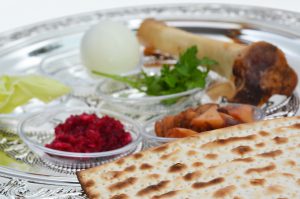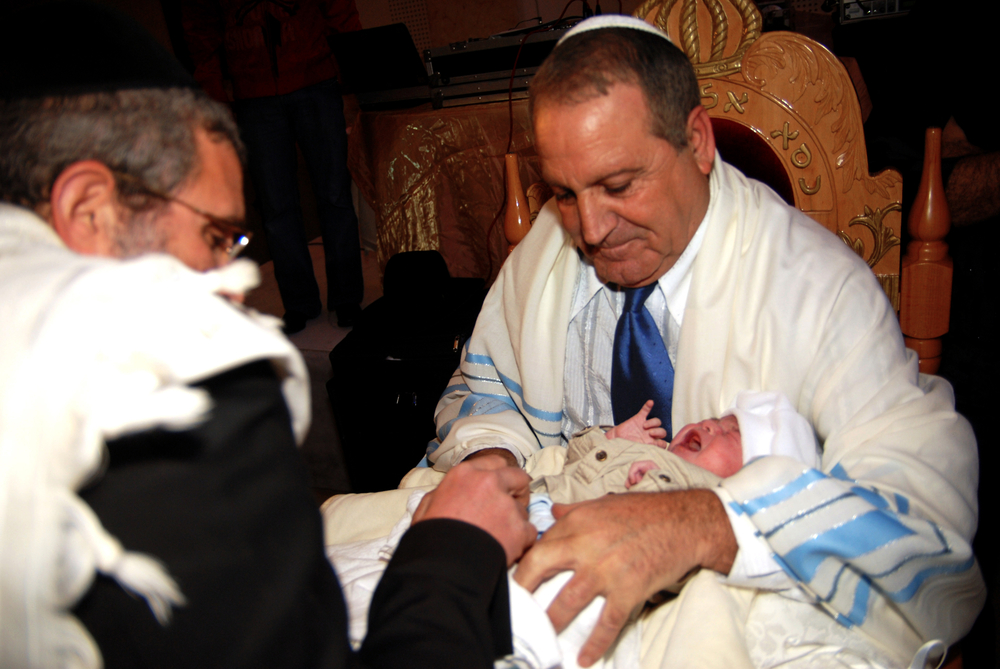In this week’s Torah Portion, Parshat Tezaveh, Hashem tells Moshe that only pure olive oil can be used to light the “everlasting flame” of the menorah, which Aharon will light each day, “from evening till morning.” Moshe is then told about the special “bigdei kehunah” priestly garments that will be worn by the kohanim, preists, Aharon and his sons. While serving in the Mishkan, all kohanim wore: 1) the ketonet—a full-length linen tunic; 2) michnasayim—linen pants; 3) mitznefet or migba’at—a linen turban; 4) avnet—a long sash wound above the waist. Additionally, the Kohen Gadol (High Priest) wore: 5) the efod—an apron-like garment made of blue-, purple- and red-dyed wool, linen and gold thread; 6) the choshen—a breastplate containing twelve precious stones inscribed with the names of the twelve tribes of Israel; 7) the me’il—a cloak of blue wool, with gold bells and decorative cloth pomegranates on its hem; 8) the tzitz—a golden plate worn on the forehead, bearing the inscription “Holy to G d.”
Moshe is also taught about the seven day process in which the kohanim would be consecrated and how future High Priests (the first was Aharon) would be inducted. Finally Hashem instructs Moshe about the daily offerings brought in the Mishkan, one lamb in the morning and another in the evening. The building of the golden altar and the incense offering which is brought on it twice a day is also taught in this week’s Parsha.
There are many symbols in this week’s Parsha! Yellow candy bottles symbolize the pure olive oil used to light the menorah daily. Blue sour belts can represent the avnet (priestly sash) and the efod which was made of blue wool among other things and the me’il which was made of blue wool as well. The candy dots represent the different stones in the choshen which were inscribed with the names of the 12 tribes of Israel. The red candy berries can represent the cloth pomegranates and bells that decorated the hem of the me’il worn by the Kohen Gadol. Finally, Atomic Fire Balls can symbolize the eternal flame which was on the menorah day and night as well the offerings that were brought twice daily in the Mishkan. Do you have other ideas for symbolic treats? Please share them in the comments section below!
Shabbat Shalom,
Shayna Levine-Hefetz


